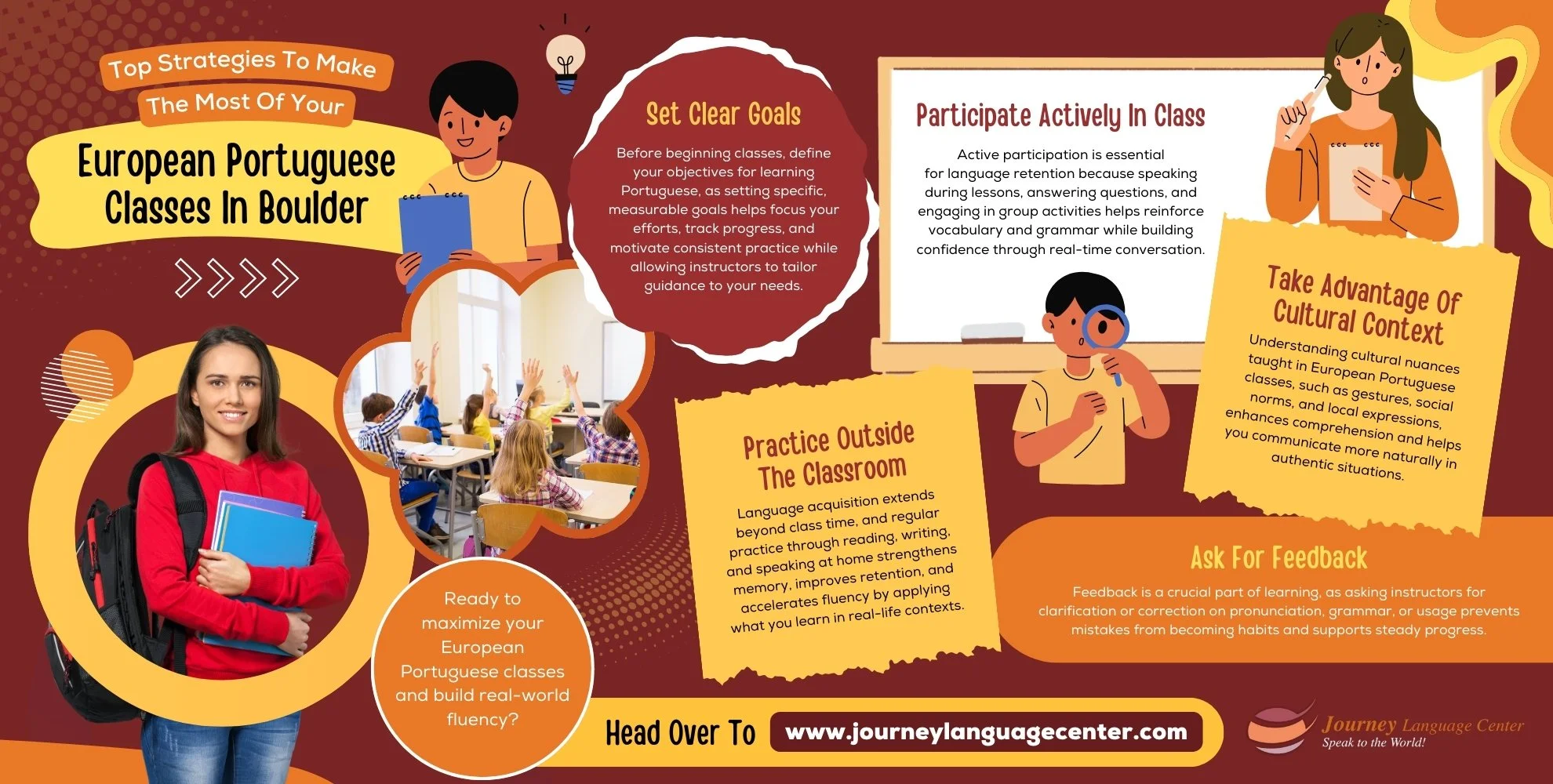Sharpen pronunciation and build fluency with European Portuguese classes in Boulder. Join Portuguese courses in Boulder, Portuguese language lessons in Denver, or Portuguese classes in Longmont for confident conversation practice.
Top Strategies To Make The Most Of Your European Portuguese Classes In Boulder
Before beginning classes, define your objectives for learning Portuguese, as setting specific measurable goals helps focus your efforts, track progress, and motivate consistent practice while allowing instructors to tailor guidance to your needs.






